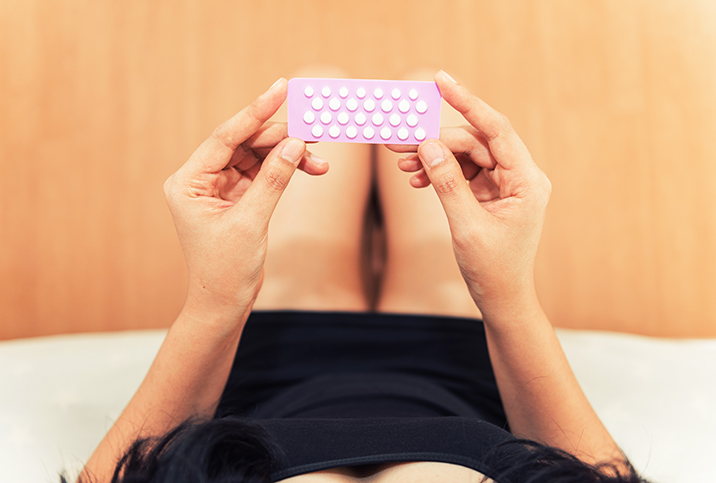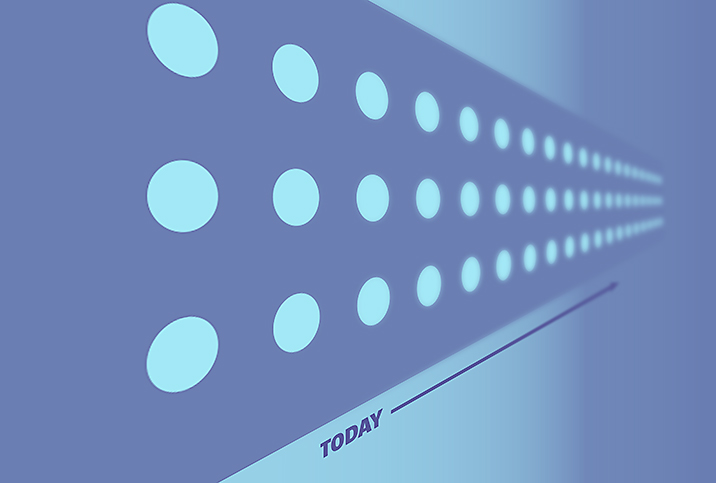You Don't Need to Plan Your Life Around Your Cycle

If you take contraceptive pills, you've probably skipped the hormone-free placebo tablets to avoid having your menstrual flow during a big event or to avoid painful cramps. People on birth control pills can skip their periods by not taking the placebo sugar pills and going straight into their next pack when using the combination hormonal birth control pill.
Before you decide to skip your period, talk to your gynecologist.
Why do we even have placebo pills?
It may come as a surprise that the placebo pill was not originally part of the plan. The placebo week was added to birth control packs when the contraceptive pill was being developed in the 1960s, the monthly sugar pills added to appease the Catholic Church.
John Rock, M.D., a gynecologist and devoted Catholic, was part of the initial clinical trials of birth control pills. Rock saw the great promise that birth control would have in aiding couples' ability to plan the size and frequency at which they would expand their families. He understood, however, the Pope wouldn't accept continuous suppression of the menstrual cycle that would result from taking oral contraception, so he developed a placebo week to help mimic a menstrual cycle and the rhythm method.
This appeasement attempt was futile, however. Even with the placebo week, the Pope and the Catholic Church didn't accept the birth control pills. Pope Paul VI outlawed oral contraceptives in 1968, which led to Rock leaving the Church. Today, placebo week is a historical leftover.
Skipping your period on the regular
It's not medically necessary to bleed each month. "It's physiologically safe to skip the placebo week of birth control pills because they don't serve any purpose in contraception," said LaKeischa McMillan, M.D., a Maryland-based integrative gynecologist, hormone specialist and author of "The Other PMS."
McMillan said you can skip your period with other forms of contraception, too. "There is no form of birth control that you can't use to skip a period. If you're using a NuvaRing, you take the ring out and put the next one in."
While McMillan said there's no limit to how many periods you can skip, if you do want to skip your periods often, there's a prescription for continuous use birth control pills. "Continuous use of birth control comes in packs of three and the placebo week is at the end of the third pack," she said.
The medical benefits of no periods
Some medical conditions may be easier to live with if you skip your period. "There are some gynecological diagnoses that benefit from continuous birth control," McMillan said.
One such condition is endometriosis. "Endometriosis is the condition when endometrial tissue that's located outside of the uterine lining is stimulated by hormonal fluctuations of a cycle," McMillan explained. "The havoc that the hormone fluctuations have on this ectopic endometrial tissue can give a person symptoms that range from painful periods to ovarian cysts to infertility."
To stop painful periods, she suggests women with endometriosis stop the fluctuations by using birth control pills. "This practice of skipping periods or doing continuous use packs is sometimes beneficial for women with endometriosis," she said.
"Continuous use of birth control for endometriosis can, in some cases, help control the debilitating pain some women experience as a result of this condition," McMillan continued. "Continuous birth control stops the ovaries from cycling through the various levels of estrogen and progesterone that occur within a 21-, 28- [and] 30-day cycle."
'There are some gynecological diagnoses that benefit from continuous birth control.'
A 2014 study review found that women who skipped the placebo week "fared better in terms of headaches, genital irritation, tiredness, bloating, and menstrual pain." Furthermore, the researchers noted that "endometrial lining assessments by ultrasound and/or endometrial biopsy were done in some participants and were all normal after cyclic or extended [combination hormonal contraceptive] use."
McMillan said another condition that is benefited from skipped periods is premenstrual dysphoric disorder (PMDD), which causes a person to experience debilitating mood changes that lead to mental and physical symptoms that disrupt their ability to function. "These symptoms are in response to the severe fluctuations in hormone levels," she explained. "These hormone fluctuations affect certain structures in the brain and affect neurotransmitters and then manifest as symptoms."
She also recommends continuous hormone therapy for people with PMDD, but noted that sometimes the synthetic hormones that make up birth control pills exacerbate the symptoms and a different management plan needs to be implemented. People with PMDD should talk to their doctor for treatment recommendations.
Are there risks to skipping placebo week?
McMillan said she's unaware of any medical conditions that would make it dangerous to skip periods. Additionally, she noted there aren't any real disadvantages of skipping periods. "The uterine lining doesn't get backed up when you skip your monthly flow," she explained. "The amount of progesterone that is in birth control prevents the uterine lining from growing a lot, so there isn't much to shed."
However, it isn't completely risk-free to skip your period with birth control. One issue would be forgetting to start your next pack on time and accidentally becoming pregnant. To avoid this, McMillan tells her patients who skip the placebo week to leave those pills in the pack so they know when they took the last active pill and when it's time to start the next pack right away. This also limits the possibility of experiencing breakthrough bleeding.
In most situations, it is completely safe to skip your period. However, everyone is different, so talk to your doctor before making the jump to regularly forgoing placebo week.


















